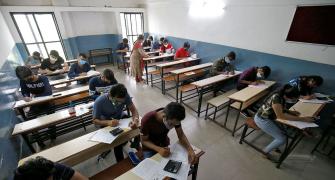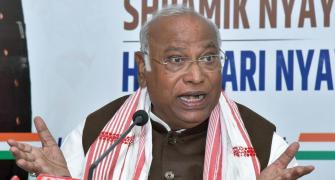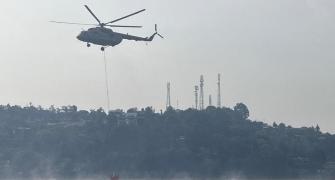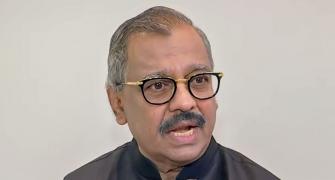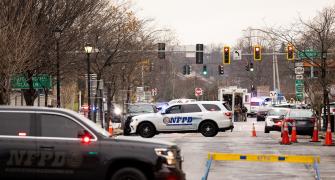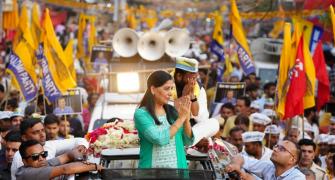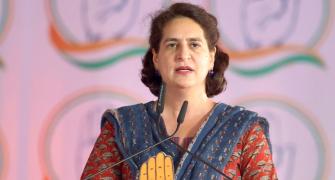Pakistan President Pervez Musharraf on Tuesday said his country will 'deal' with India on the basis of 'sovereign equality'.
He accused India of being not sincere on the issue of Kashmir, which he said cannot be allowed to be 'sidelined'.
"We want to develop peaceful relations with India. We want to have a composite dialogue with them," Musharraf, who is on a three-day official visit to China, said in a speech to students and teachers of the prestigious Peking University.
On Monday Chinese President Hu Jintao had appealed for 'reconciliation' between Pakistan and India.
Musharraf claimed longstanding conflicts and disputes, in particular Palestine and Kashmir, remain 'potentially explosive'.
"The two disputes are a legacy of colonialism. These disputes must be resolved on the basis of respect for the wishes of the people involved," he said, indirectly referring to his demand for a plebiscite in Kashmir.
"We cannot be coerced and we will guard our honour and dignity very zealously," he said.
Musharraf said international terrorism must be curbed in all its forms whether carried out by individuals, groups or sponsored by states.
"We have to fight this war with vision and understanding," he said.
"Who is a terrorist?" Musharraf asked the audience and went on to offer his own definition of a 'terrorist'.
"Any killer is an extremist. If we stop here we would be addressing symptoms only. If we take a step forward; the issue of right and wrong emerges. In conflicts, issue of United Nations Security Council resolution implementation comes in," he said.
"Individual killer is an extremist but State may be the terrorist. Both are wrong and must be stopped," he said.
Commenting on Pakistan's decision to be on the frontline in the global war against terrorism, Musharraf said Islamabad joined the US-led coalition based on the country's national interests.
"We took the decision on the basis of principles and our own national interests. Pakistan has been a victim of sectarian and religious extremism," Musharraf said.
He then lectured on how Islam and the Muslim community have suffered in the past decade, especially after September 11 terrorist strikes against the US.
"As for the conflicts and disputes of the last decade, from Bosnia and Kosovo to military operations in Afghanistan and then Iraq and then the continuing tragedy of Palestine and Kashmir, all have aggravated Muslim suffering and affected the Muslim world," he said.
As a result there is a polarisation of opinion among the Muslim masses and the west, he said. This situation, he added, has given rise to two 'serious misperceptions'.
Firstly, within Muslims that Islam is being targeted and secondly, within the west that Islam is a religion of extremism, militancy and intolerance.
"These misperceptions must be rectified because both are wrong," Musharraf said.
Commenting on the ongoing operations against Al qaeda and Taliban, Hamas and Hizbullah are all of 'short term' value, Musharraf said, "Long term strategy lies in addressing the root causes of terrorism."
Musharraf said the root cause of extremism and militancy is the 'hopelessness, powerlessness, desperation, injustice and non-resolution of longstanding political conflicts'.
Added to this are poverty and lack of education; that makes an explosive combination, he said, while suggesting his own prescription of 'enlightened moderation'-- which he said was a two-pronged strategy.
"One prong places demand on the Muslim world that it must reject extremism and opt for socio-economic emancipation. Second prong calls upon the world, especially the West, China can also contribute," he said.
"This is to help resolve political disputes with justice. Failure is not an option, also there is need to help poverty alleviation and education in the Muslim world," he said.
During his speech, Musharraf also paid tribute to the Pakistan-China relations and hoped that his ongoing visit and meetings with the new Chinese leadership would further strengthen the bilateral ties in the new century.

